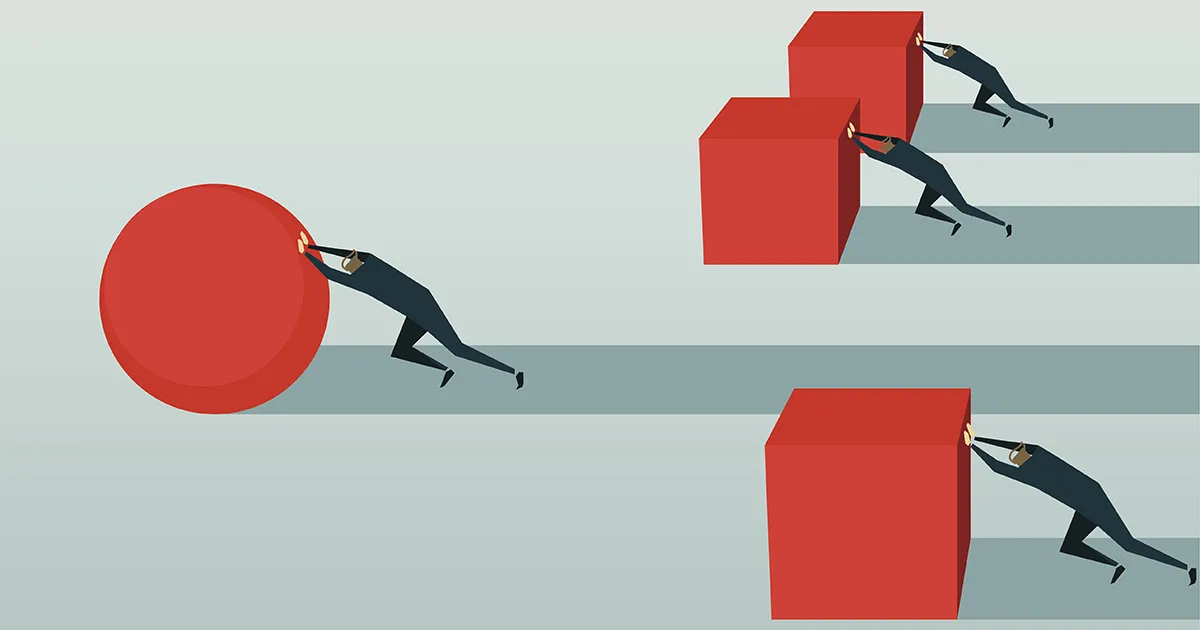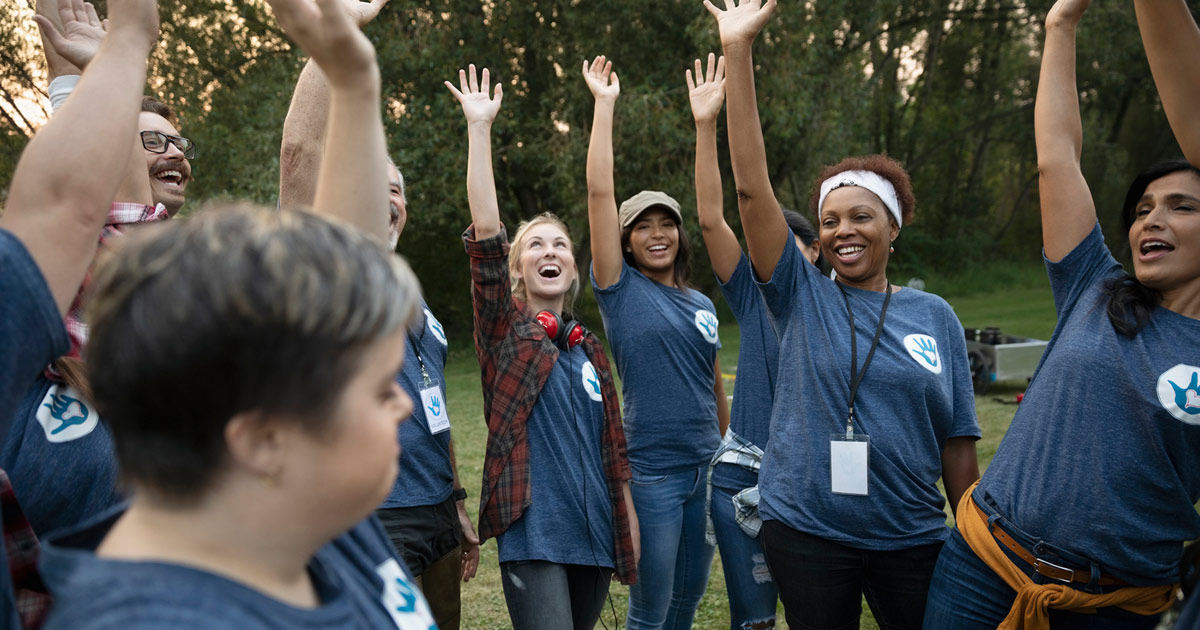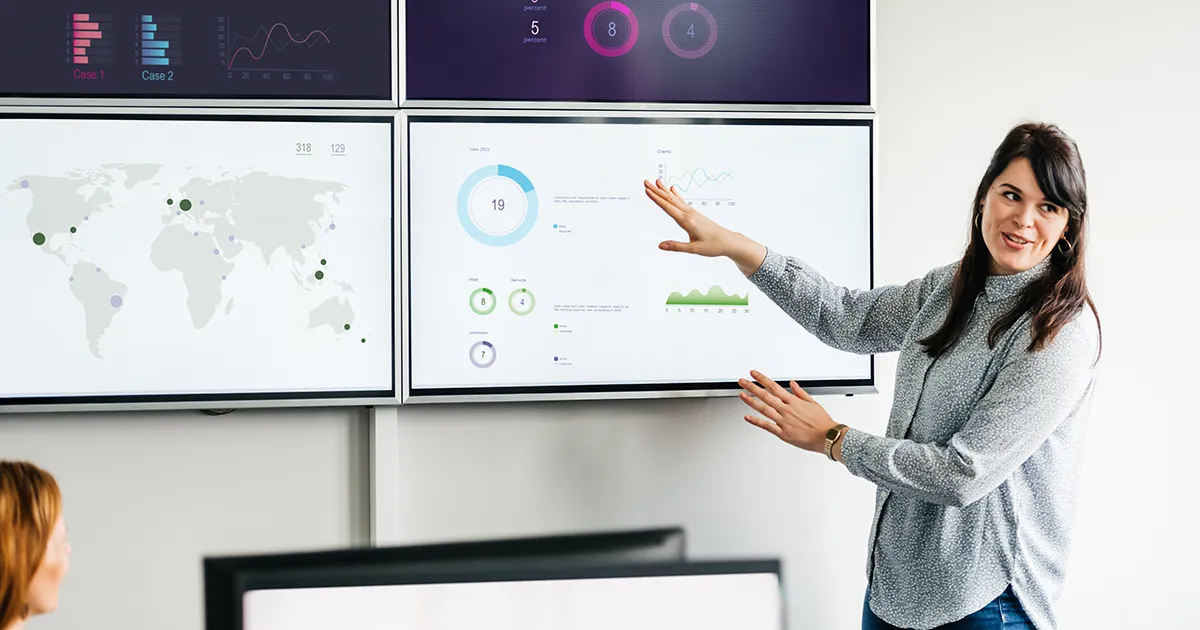In today's episode we discuss what are the Sustainable Development Goals (SDGs), why they're important and why they matter. We also explore the five P"s of the SDGs, if they are still achievable and challenges to meeting them.
This is part 1 of our 3-part series on the Sustainable Development Goals.
Part 2: Why the Sustainable Development Goals matter for business today
Part 3: 2030 SDG Agenda - What can we accomplish together
Watch the episode:
Prefer to listen?
What we discussed:
Karl Yeh:
So, today we've got two special guests. My first guest is my cohost, who is Janelle St. Omer. Who is the Regional Vice President with Benevity, and our special guest today is Sue Stephenson. Who is the Co-founder of Impact 2030.
Janelle St. Omer:
Hi, Karl. Hi, Sue. It's great to be here. Sue, thank you so much for joining us this afternoon to talk about the [00:00:30] SDGs.
Sue Stephenson: Very welcome. Thank you so much for the opportunity.
Janelle St. Omer:
So. Sue, I think one of the first places to start, I mean, I just said SDG, so I use an acronym, but
What are the Sustainable Development Goals?
Sue Stephenson:
So, the sustainable development goals? Shortened to SDGs, but I think commonly called the global goals, are goals that the 193 member states of the United Nations adopted in 2015. [00:01:00]
So, this was the first time all member states, all countries that are part of the United nations came together to collectively agree on what are the primary issues on the planet.
And, they are split into 17 goals of which many said are far too many, far too many.
But the reality is when you look at the 17 goals speak to extreme eradicating extreme poverty, and hunger, fighting for gender equality, fighting for peace, ensuring that cities are sustainable, and showing that this climate action, quality education for all.
[00:01:30] They're all key goals. Also, they're applicable to wherever you are on the planet.
So, all countries for the first time ever came together and adopted those goals.
So, they are an incredibly powerful roadmap, that are applicable to us all.
So, I would be happy to provide more information.
I have my handy, sustainable development [00:02:00] global goal icons behind me, which I'm sure everybody listening to the piece will be familiar with.
Janelle St. Omer:
And I think it's a really good point around it's the first time that everybody has agreed to these big audacious goals.
But can you tell us why are they so important? Why do you think that these particular goals that were chosen are important to advance our world? Why are they the ones that all of these groups could agree to?
Why are these goals important? Why did the United Nations agree to them?
Sue Stephenson:
I think it was the as background, [00:02:30] the millennial development goals were in place through until the end of 2014, and they were goals that had been previously adopted that were applicable to developing nations.
So, they did speak to extreme poverty, and hunger, and some of the issues that are identified in the global goals.
It was very much felt that work was unfinished as it as [00:03:00] 2015 was approaching.
So, there was a lot of consultation in the three years leading up to 2015 to identify,
- What should these goals look like?
- How many should there be?
- Who should they be applicable to?
I think the beauty of the goals is that there is such broad applicability, 17 goals, 169 targets that sit underneath them written primarily for government.
But, [00:03:30] for those of you that have had the opportunity.
And if not, I would encourage you to look through those targets as well, to see where they are applicable to each and every one of us in our personal lives, in our business lives, local government communities, cities, countries, regions, nations, etcetera.
I think the secretary general, Antonio Gutierrez, talks about,
We need global action, we need local action, and we need people action, and really speaks to that fact that all of us play a role, whether it's business, whether it's us individually, etcetera.
[00:04:00]
We all play a critical role in regard to advancing these goals, which have just another nine years for us to achieve these audacious goals.
Janelle St. Omer:
Wow!. And I love that, global action, local action, and people action, because it really does take all of us to come together to drive impact in some [00:04:30] of these areas.
And the reality is these areas impact all of us as well. So we all should actually want to do something to drive these goals forward.
Sue Stephenson:
Yes, very much so.
The goals as they were created to great fanfare, I mean I can.
I'm sure many people will remember you know, in 2015, in September 25th, when they were adopted, buildings in New York where, I remember Pfizer headquarters being wrapped and the sustainable development goals icons, the United Nations [00:05:00] was lit up.
There was, people, celebrities, there was this global messaging going on project everyone, which is actually a very important resource for people that are invested in the goals, are starting to adopt the goals, want to communicate the goals, but it was it's an organization that took upon itself creating these icons to take was an incredibly complex set [00:05:30] of goals.
And you can imagine with United Nations, everything that's built out underneath it, very complex for people to understand.
So adapt to them into 17, easy to understand goals, the icons underneath that's available open source on global goals.org in all of the main languages on the planet, and have taken a played a very effective role to ensure this ongoing cadence of awareness.
Janelle St. Omer: [00:06:00] So what are the Five P's, of sustainable development.
What are the five "P's" of the Sustainable Develop Goals?
Sue Stephenson:
Yeah. The five piece. So there's been many attempts try to figure out how all of these goals lock together, which they do. You know, hunger is connected to education.
For example, you can't educate a child.
That's hungry.
All of the goals, the interconnectedness is a key component of it, but they're often grouped together in sorts of grouping of five.
So [00:06:30] it talks about people.
I want to make sure I don't miss one here
- People,
- Planet,
- Prosperity,
- Peace, and then
- Partnerships.
And the partnerships one for me is most key, particularly when we talk about the business sector, because I think the sustainable development goals really crystallized the concept that there is so many silos around the world, how business operates between businesses, between sectors, how communities operate, how governments operate, that there's how do we ensure, that there's this free [00:07:00] flow, both always, and that there's this working together for a common purpose.
Now I think that goal 17 partnerships for the goals is I think is paramount to ensure that we can make progress.
Janelle St. Omer:
Absolutely. Well, thank you. I, cause I hadn't heard it.
It's quite described as the five piece as well, but I think, even if a company is looking at, what are the buckets, I think that they could absolutely sort of adopts on one of those bucket areas as well.
Sue Stephenson:
Yes. In our next episode, [00:07:30] we'll talk about how business can. Sort of integrate the STGs and ESG, and what are best practices. So I'm looking forward to being able to share that as well.
Janelle St. Omer:
Awesome. [inaudible 00:07:40] what you do.
So, maybe a thought provoking question for you, who's been so involved in impact 2030, but are these goals achievable? So from your perspective.
Are the Sustainable Development Goals achievable?
Sue Stephenson:
So, from the very beginning, I think people recognize that the goals were so audacious.
I think as those, there was so extreme, [00:08:00] great progress had been made.
I think in the first four years, the data points, the metrics that were coming in were incredibly exciting, compelling without question lead, the secretary general Antonio Gutierrez has messaged very clearly that the pandemic has taken the goal, the achievement of the goals out of reach, but that's in many ways the [00:08:30] data, the statistics, was where we talk about in parts of the world, hunger, poverty, the statistics are worse than they were and will continue to get worse for some time, because of the impacts of COVID-19.
So, I think that should just all strengthen our resolve to see what we can all do to continue to do the needle.
Janelle St. Omer:
With that.
Because obviously, the pandemic has aspirated so many different things.
It has there been any conversation or is this something that the UN would even [00:09:00] entertain to push back the I guess the target date of 2030, and perhaps, give us an extra two years since we lost two years.
Should we push back the target date of the goals? Perhaps due to the pandemic?
Sue Stephenson:
Yes. I think the global goal's week, I'm not sure when this will show, but you know, Global Goals Week, starts on the 17th of September of this year.
So it runs parallel with the United Nations general assembly.
And it's really, this platform to create a sort of global awareness, heightened awareness around the goals and progress. [00:09:30] The goals are formally adopted by the member states in writing.
They were ratified through 2030. I think we can all expect that goals, whatever they will be called in different ways, shape or form will be.
They will probably start working on them in just a couple of years to get them ready for adoption in 2015.
So this is a marathon.
It's not a sprint, as we all know, it's a marathon.
And I think we can all expect that there will be [00:10:00] goals, but hopefully we can show that this is the first time with a global focus that they've been able to collectively move the needle.
Karl Yeh:
So. Sue, when you're talking about the pandemic, you've probably also seen other challenges with the sustainable development goals.
So, can you explain what are some of those challenges globally that affect maybe making those goals achievable whether they're, achievable with the initial target or achievable [00:10:30] whenever the target that we're going to be setting?
What the some challenges to accomplish the Sustainable Development Goals?
Sue Stephenson:
Great questions.
So, I mean, certainly the pandemic has had a profound impact in many ways, also because funding that governments have been redirected.
So, that is they're drawing that money from other areas, hence that sort of role roll on effect of the impact on the ability to focus on other issue areas [00:11:00] I've seen also, I will say here within the US we've seen to some degree, the private sector has lessened its overt attention to the sustainable development goals, not all companies, but in general, they're not front and center.
I do think that part of that has been politically influenced, for the [00:11:30] under the last administration, obviously there were issues in the relationship with the United Nations itself.
We withdrew from many organizations that now we have rejoined, we have joined the world health organization.
We have joined the Paris Accord, we have renewed funding to the United Nations.
So, I think that it the commission for women who were part of, so all of these important components [00:12:00] that send the message to business.
So I think we've seen how companies have maybe not have the sustainable development goals as much front and center as they did back in 2015.
Karl Yeh: Sue, if anyone wants to connect with you, what's the best way to do so?
Sue Stephenson:
Best to connect with me through LinkedIn, I'm always delighted to connect with people that want to talk sustainable development goals, global goals, or anything else.









